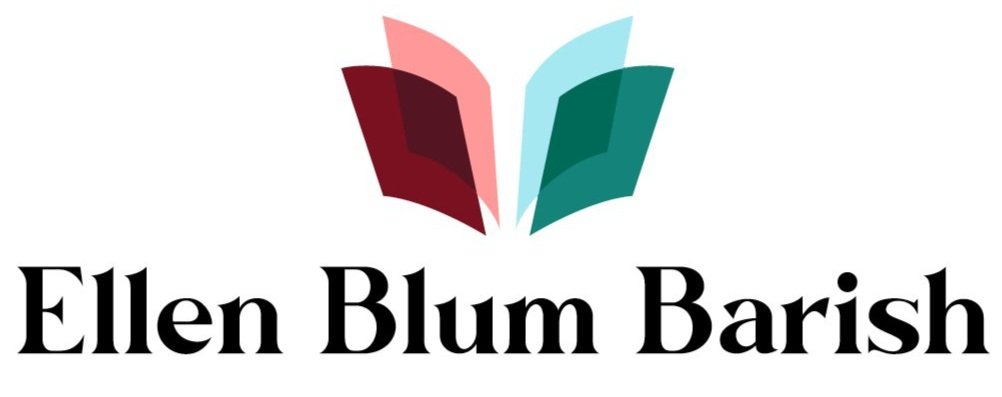Recipe for Writing In Eight Steps
In honor of National Novel Writing Month, some thoughts on writing process...After a lively discussion of a beautifully written published essay during one of my writing workshops, a student will inevitably sigh and say one of two things:“I’ll never be able to write like that.”Or“That reads like it slipped right out of the writer’s fingertips.”These get me every time.Where did we get the idea that we need to write like anyone else?And who told us that writing isn’t hard work?It stirs me up because what I select for discussion is meant to inspire, not inhibit. We don’t think about how long it takes to paint or sculpt or create a symphony. Where did we learn that good writing just pours out of our pens?I have two theories about this.The first is whether it’s texting, emailing or taking notes in a business meeting, we may think of writing as work, not art. And second, I’ve been noticing a trend in book reviews, author interviews and literary podcasts focusing on the back story of the written work over the process of turning that story into art.We aren’t spending enough time on craft!So I am determined to change that, right now.Let’s look at an essay of mine that is currently under construction.The essay began as a blog post about an experience I had in the New Mexican desert in 2013 but since then, parts of the story stalked me. When an idea just won’t leave I find that it’s best to give myself up to it. That’s step one: invite the subject in.I started on a first draft with the goal to capture the words without worrying about what it looked or sounded like. This would be step two: brain dump.Then I got up did something else. Many something else’s. A day or two passed. If I find myself thinking about the piece when I’m away from it and I’m itchy to get back to it, that's a good sign. When I return to it and reread it and most of it rings true, the essay is officially under construction. But if it doesn’t, and often it doesn’t, I call it a noble failure and let it go.I liked enough of this piece to keep at it, which officially launched step three, the first tweak. I put words in. I took words out. Rearranged others.Next, I put some distance between me and the draft. To do this, I utilize two tricks. I either replace the piece with typeface that isn’t my usual go-to or I read it out loud. These constitute step four, putting on the editor hat.Step five is handing the draft over to a trusted someone. In my case, it’s my husband. If he doesn’t get it or quibbles with a sentence or reacts with a meh, I know it’s not working yet. I call this the let it go step. Frequently bad thoughts pop up while I wait to hear his response. This happens often enough that it merits it's own step, Step 5A, insecurity. It's just part of the process.Here are some examples of bad thoughts:Why does it take you so dang long to write this stuff? This doesn't read like the essay you had in your head.Where's that killer ending? I was concerned about the ending for this piece. It was too pat. My husband provided some notes. I made some more tweaks. I changed the title. I played with the ending. Then I sent him another draft.Then the words I live for: It’s good, he said. Better. But he had some more notes. That’s Step Six: approval from outside.I try not to get too attached to my sentences, but the last line just wasn't working. I altered the words that came before and it was better. Then I walked away. In this stage, I know the essay has shape, structure, flow, voice. I did some reading about metaphors of the desert. When I returned, I grappled with the final word. Should it be ‘speaks’ or ‘calls’? Then I Googled a term that came from my reading and found an entirely new analogy that felt like it worked well for the ending. Something that only time allowed. These final fixes make step seven, or letting it cool.Right now, that’s where the essay stands, it's on the rack, cooling. But I am working on it in my head. Writers don’t give enough credit to letting our work rest, to unconscious processing, the priceless gift of time.It’s tempting to ask if a writer logged the hours she puts in to a written work, would she ever want to write again? But do we count the time it takes to fall in love or raise our children?I think that the making of an essay is similar to creating a several course, gourmet dinner. The preparations seem endless, but the completion, so satisfying.Things that matter always take time.Even if the final step - which I call, the serve - doesn’t. Free Writing Guides & My WebinarCheck out the new Guides page of my website for two downloadable e-guides, "Writing Your Marker Story" and "Ellen's Eight Essential Elements of Essay" and a recording of my webinar "Leaving a Legacy by Letter." Free! Upcoming Workshops
Photo by Louis Hansel (Unsplash)
